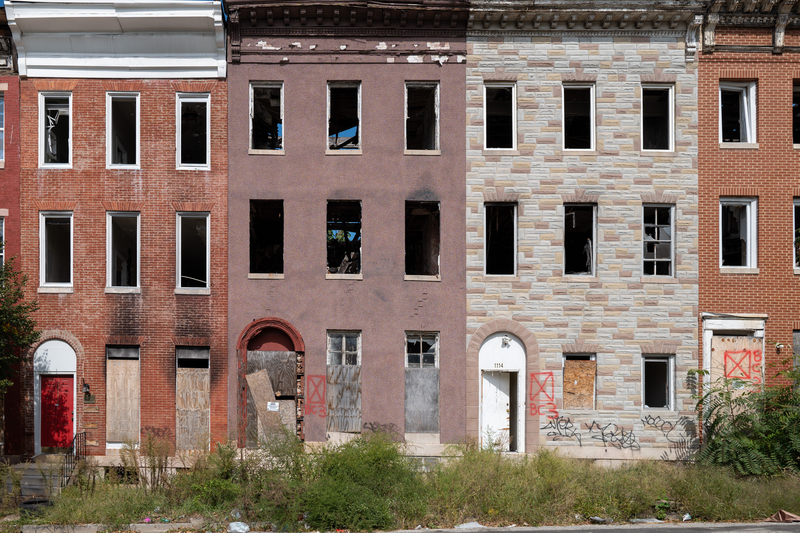
Photo: Sabih Jafri | Dreamstime.com
Baltimore to track vacant properties with blockchain
11 December 2023
by Sarah Wray
Baltimore is launching a pilot using blockchain technology to record its vacant housing inventory. The announcement follows approval last week from the city’s Board of Estimates.
The city said the move represents a pioneering example in local government and it also hopes to use blockchain in more areas such as smart contracts and tokenisation.
Baltimore’s vacant housing problem is long-standing and attributed to factors such as population decline from the 1950s, economic challenges, disinvestment, and historic racial segregation and redlining.
The number of vacant and abandoned houses increased gradually from 1995 to 2002 to around 16,000, and hovered around this level for almost two decades. Today, there are around 13,600 vacant properties, which are primarily situated in disadvantaged neighbourhoods.
The crisis reached a major breaking point in January 2022 when three city firefighters died while tackling a fire in a vacant house.
Mayor Brandon M. Scott asked each agency in the city to come up with recommendations to combat vacant housing.
Enter the blockchain
Ebony Thompson had just joined the City of Baltimore as Acting City Solicitor in the Law Department and prior to that had completed an MIT course in blockchain. She put the idea of using blockchain forward as part of the city’s efforts to tackle vacant buildings.
Blockchain is a decentralised digital ledger technology that securely records and verifies transactions across a network of computers.

When properties become vacant, the existing process is “very convoluted,” Thompson told Cities Today. It often isn’t clear who owns a property when people have passed away or moved many years ago. In addition, getting the property back into circulation requires several handovers, first to the city, then to an investor, then a renter or buyer. Each transfer requires a title search and title insurance.
“By using blockchain, which is an immutable ledger, we are streamlining the way that these properties get through,” said Thompson.
The project has taken two years to come to fruition as it is such a new area for a municipality.
Baltimore is working with Medici Land Governance to build the blockchain, which will be capable of recording up to14,000 properties. The company has worked on blockchain-based land administration projects in Rwanda, Liberia and Guyana. It has also worked with governments in the US. A 2020 agreement with Carbon County, Wyoming focused on developing a blockchain-based land records and information platform. Additionally, in 2021, a partnership with New York City Department of Finance was announced with the aim of detecting deed fraud.
Thompson commented: “To actually use it as part of a comprehensive vacant housing strategy is extremely unique.”
Ropes & Gray LLP is providing pro bono legal support.
“While I lead the law department, none of us had ever done a contract on this type of level,” said Thompson. “There were specific terms that we didn’t understand and weren’t familiar with.”
Through a partnership with Johns Hopkins University, students also provided input on blockchain technology and use cases. Internal partners include the Department of Housing and Community Development and the Information and Technology team.
The pilot will run for three years in parallel with the existing system at a total cost of US$225,000. Medici Land Governance is providing their service at cost.
First phase
Thompson said the pilot represents “the first phase” of using blockchain in Baltimore and there are also hopes of incorporating smart contracts into payment systems and using tokenisation for vacant properties, which could allow more people to own and trade fractions of properties.
“This technology has the potential to enable individuals who have been denied the opportunity to own real estate to finally experience the advantages of one of the oldest and most significant assets for building wealth,” she said.
Smart contracts could also enable sub-contractors on city projects, who are often minority and women-owned small businesses, to get paid automatically when the work is complete. This would eliminate delays associated with waiting for invoices to be settled after the city has paid the prime contractor.
Thompson said Baltimore is keen to share experience and collaborate with other cities on blockchain: “We know that the success of this really is about mass adoption.”
Many other US cities are also dealing with the challenge of vacant and abandoned houses, including Detroit, Philadelphia and New Orleans.
Later today, Mayor Scott is expected to announce a long-term strategic investment to combat vacant and abandoned properties in Baltimore.














